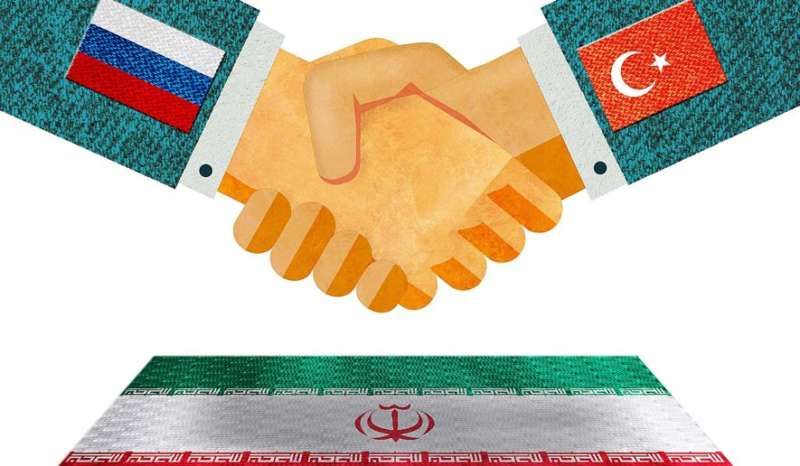
Autocracies and other despotisms are notoriously unfaithful to their obligations under international agreements. When the Soviet Union was still around, it set the standard by evading and cheating while falsely accusing its Western counterparts of doing the same. The Soviets’ successors are following its well-trodden path. Vladimir Putin’s renewed aggression in Ukraine is but one example. Less subtle (if that’s possible) and more immediate are Iran’s conduct, in respect to President Obama’s nuclear weapons deal with it, and Turkey‘s, in regard to its agreement with the European Union on the control of immigration.
When the Soviets made deals, their violations of them were constrained only by our military power and reflexive diplomatic pressures. No such constraints exist today.
In September 2015, months after Mr. Obama made his deal with Iran, that nation’s “supreme leader,” Ayatollah Ali Khamenei, declared that he required termination of all international sanctions, not just their suspension as the deal provided. The Iranian Parliament, which acts on his instructions, attached nine conditions to ratification, most of which have not occurred. Iran, by its own declarations, hasn’t bound itself to the agreement.
On Aug. 1, as reported by the Middle East Media Research Institute, Ayatollah Khamenei said that dealing with America is “deadly poison for us,” that America is “malicious” and has no scruples about breaking its promises. He added, “The reason why I have been repeating for many years that we will not negotiate with America is this: America is the Great Satan.” As the Soviets did, Ayatollah Khamenei is accusing us of conduct Iran continuously engages in to build anti-American sentiment and as a cover for Iran’s breaches.
Iran continues to beat this drum. Only last week, Iranian Foreign Minister Mohammed Zarif accused us of not abiding by the agreement’s terms. Judged by the historical fact that not once in the ayatollahs’ regime have they changed their behavior as a result of an international agreement, it’s a safe bet that they’re only pretending to abide by the Obama deal until it’s advantageous to openly break it.
The conduct of Turkish President Recep Tayyip Erdogan demonstrates that his March agreement with the EU to control the flow of “Syrian” refugees to Europe is in the way of his other ambitions.
Under the agreement, Turkish citizens are supposed to be able to travel, like EU citizens, without passports in the EU. The price Turkey is supposed to pay for that privilege is the reform of its human rights and anti-terrorist laws. The latter are being used by Mr. Erdogan against people with no terrorist ties in his purge of non-Islamist military, journalists and educators after the attempted coup. Turkey has rejected the EU demand that it reform those laws, so passport-free travel in the EU is not being granted.
Europe and America have had more than fair warning of Mr. Erdogan’s intentions. Last year, NATO Commander Gen. Philip Breedlove warned that with Turkey’s acquiescence, Russia and Iran were “weaponizing” immigration, intending to destabilize the economies of Western Europe. Russia and Iran have gained a side benefit because of ISIS’ embedding terrorists within the refugee flow, further destabilizing nations such as Germany and France.
Mr. Erdogan’s conduct goes far beyond rejecting the terms of the EU immigration agreement. He has used the purge as cover for his desire to shun the West and align Turkey with Mr. Putin’s Russia. That realignment away from NATO and toward Russia was made clear by his meeting last week with Mr. Putin near St. Petersburg.
Mr. Putin reportedly called Mr. Erdogan soon after the coup attempt to offer restoration of relations. Before the meeting, Mr. Erdogan gave a statement in which he sounded like a Soviet-era apparatchik. On Turkish television, while explaining the mass arrests after the coup attempt, he said, “The West cannot subdue the will of the Turkish people and cannot split Turkey up.”
The St. Petersburg meeting was Mr. Erdogan’s first trip out of Turkey since the attempted coup. Turkey’s downing of a Russian bomber near its border with Syria in November has been quickly subordinated to the desires of Mr. Putin and Mr. Erdogan to transform Turkey into a de facto Russian ally.
At the meeting, Mr. Putin told Mr. Erdogan that he was willing to begin restoring economic cooperation with Turkey. It will begin with resumption of agricultural imports cut off after the Turkish shootdown of the Russian aircraft. But, as always, improved relations with Russia come with a price. This one Mr. Erdogan is eager to pay.
By their intervention in the Syrian war, Russia and Iran have established the points of a triangle that aims to dominate the Middle East. Mr. Erdogan seems to want to share in the spoils. At the meeting, he reportedly said Turkish-Russian relations are not limited to trade and economic ties.
At the post-meeting press conference, Mr. Erdogan said: “If the talk is about widening the circle of participants, then I already told my dear friend Vladimir [Putin] earlier: If necessary, we’ll also involve Iran in the effort. We can invite Qatar, Saudi Arabia and America. In this regard, we can form a wide circle of participants. If not, then the Russian Federation and Turkey, given our common 950-kilometer border with Syria, can take some steps, without violating Syria’s sovereignty.” That statement commits Turkey to joining Russia and Iran in supporting Bashar Assad’s terrorist regime.
Mr. Erdogan’s words and actions carry a plain meaning. He will, whenever he chooses, join Russia and Iran in future action. They likely means that Turkey will join in “weaponizing” immigration to destabilize Europe. Mr. Putin aims to destroy NATO’s remaining credibility, and Mr. Erdogan will be his tool.
Jed Babbin served as a deputy undersecretary of defense in the George H.W. Bush administration. He is a senior fellow of the London Center for Policy Research and the author of five books including In the Words of Our Enemies.
